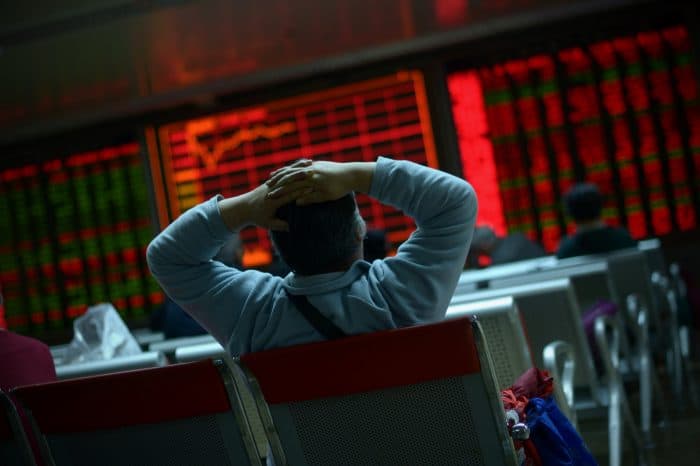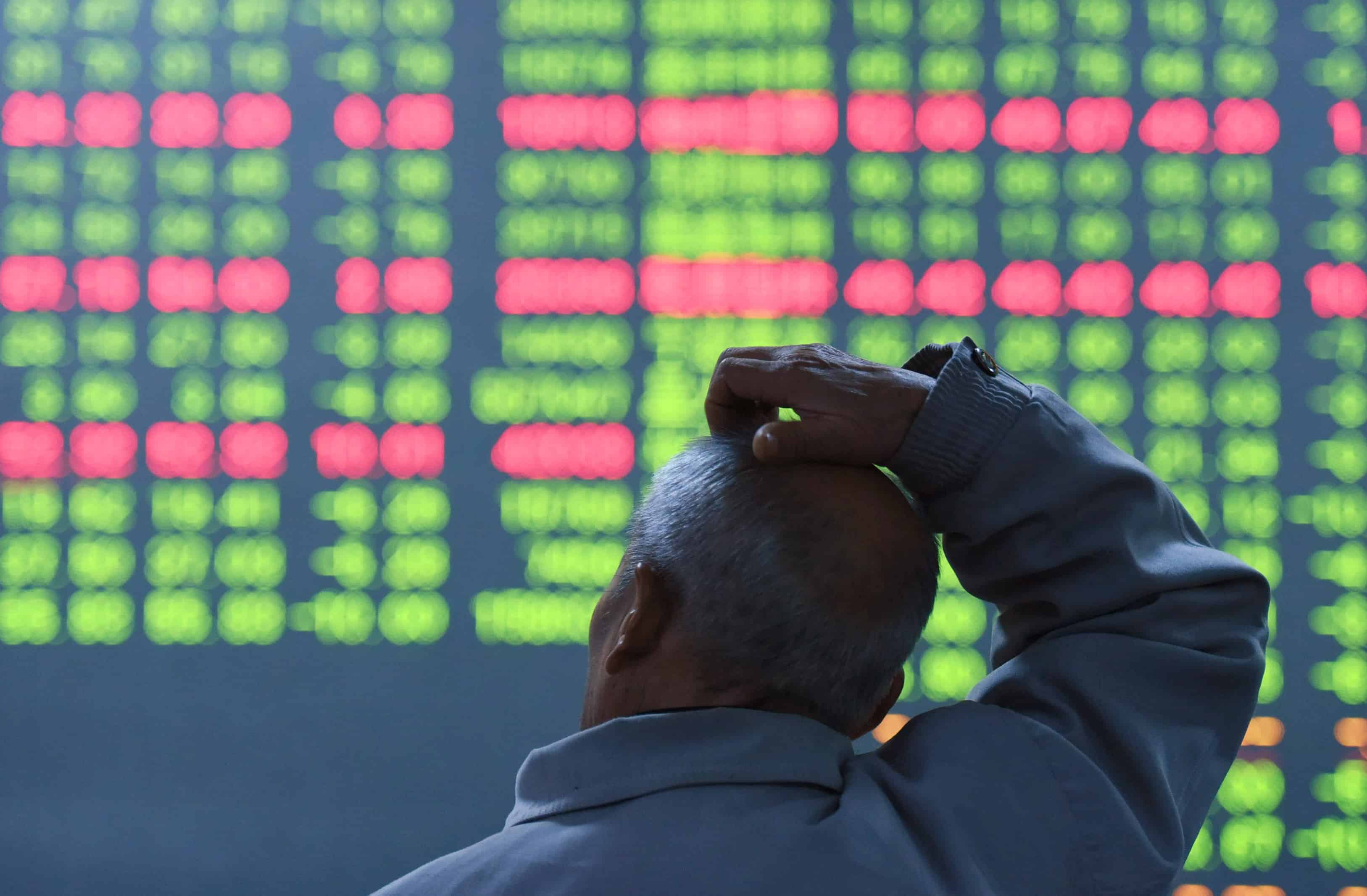China’s economic slowdown and financial mayhem are fostering a cycle of decline and panic across much of the world, as countries on nearly every continent see escalating risks of prolonged slumps, political disruption and financial losses.
South Africa’s currency, the rand, plunged on Monday after stocks once again sold off in China, which is the country’s largest trading partner. South Africa’s economy — like that of many countries on the African continent — had been fueled by China’s hunger for natural resources, but the slowing demand now threatens to compound its many other problems and worsen a food crisis.
Throughout South America, China’s declining appetite for commodities has led to deep recessions and talk of a “lost decade.” Venezuela is facing inflation in the double or triple digits, Brazil is experiencing rising unemployment, and both countries are confronting political upheaval as leaders strain to preserve public benefits.
And there are less direct effects. China’s slowdown is one of the big drivers of the massive fall in oil prices, which hit a 12-year-low on Monday of $31.56 for a barrel of Brent crude, and that is causing its own problems.
Petro-states Saudi Arabia and Russia have both taken massive hits from the collapse in oil prices, and now are facing serious domestic financial challenges as a result. Russia and Saudi Arabia both export about 14 percent of their oil to China, according the Energy Information Administration.
The United States economy, meanwhile, has proven fairly insulated so far, and some industries that operate in China like fast food and retail are expected to stay that way. Still, U.S. stock markets have struggled this year, and many economists warn job losses could begin occurring outside of those already seen in the mining and energy industries if China’s economy worsens.
Already, Caterpillar, long a darling of China’s economic growth, selling both to China and to the countries that sold China commodities, has reported declining sales, and its stock price has fallen to its lowest level since 2010. On Monday, aluminum firm Sherwin Alumina Co. filed for chapter 11 bankruptcy.
“A slowdown of half percentage point, or even a percentage point slowdown, is not going to have a very big impact on the U.S. economy. If you’re South Africa or Peru, Chile, Colombia, Malaysia, or Thailand, then it’s a different matter,” said Paul Sheard, chief global economist, Standard & Poor’s Ratings Services.
On Monday, stocks in Shanghai fell 5.3 percent, and they’re down 16 percent in the past six days. Analysts are not particularly worried about the ups-and-downs of the stock market in China, because it only has tangential connections to the economy, but say the volatility underscores deeper fears about whether China’s economic growth is worse than official statistics indicate.
After years of runaway growth, virtually all independent experts agree China’s economy was bound to slow. But the question now is how much the world’s second largest economy will decelerate, from double-digit growth to a stable 6 or 7 percent or a substantially worse 3 or 4 percent – or even lower.

Worldwide impact
Most hit are those countries that thrived on China’s seemingly insatiable demand for natural resources. Virtually no continent is being spared, and developed and developing countries alike are facing harsh consequences.
As China developed and built the world’s solar panels, laptops and iPhones, it sucked up oil, iron ore, copper and machinery and bid up the price for those raw materials. “So the end of China’s investment boom means the reverse,” says Patrick Chovanec, chief strategist at Silvercrest Asset Management.
In Asia, Indonesia saw coal exports plunge after China’s economic challenges began to surface last year. Brazil, Peru and Venezuela also have ailed from commodity prices collapses.
“All those economies benefited greatly from China’s rise, and the flip side of that is they have been hit as China’s growth has slowed and prices have fallen,” says Neil Shearing, chief emerging markets economist at Capital Economics.
The pain has not been limited to the developing world. Australia’s exports of iron ore and other minerals to China, its largest trading partner, have declined, raising fears of a recession. Korea, Japan, Thailand and Taiwan could also be vulnerable.
“[T]he global spillovers from China’s reduced rate of growth, through its diminished imports and lower demand for commodities, have been much larger than we would have anticipated,” Maury Obstfeld, chief economist of the International Monetary Fund, said earlier this month.
Obstfeld recently warned that China’s slowdown and wilder volatility in emerging markets are among the biggest threats to the global economy in 2016.
South Africa
South Africa is a case study in over-reliance on China, and the painful consequences that are now playing out.
On Monday, the South African rand fell by 10 percent compared to the U.S. dollar, reaching an all-time low before recovering some ground and ending the day at 16.57 rand per dollar. China is South Africa’s largest trading partner, exchanging around $20 billion in goods a year, and its thirst for South Africa’s natural resources had helped power the country’s economy. Iron ore, coal, gold, and other minerals are among South Africa’s largest exports.
The decline in the value of the rand could make it more expensive for South Africans to buy goods and services and harder to pay debts.
“There’s a pretty ugly mix really of political, economic and deep-seated structural problems exacerbated by the slowdown in China which made the rand pretty vulnerable,” Shearing said.
The timing of the economic slowdown and the currency dive could have drastic consequences for food security in South Africa. The country has faced a major drought recently and will likely have to import more food than it usually does – but a less valuable rand will make those imports expensive in some cases, analysts say.
Some have argued that South Africa and other countries on the continent are now paying the price for an excessive reliance on China. But the reality, some analysts said, is that commodity-exporting countries have had little choice as the Chinese import market expanded.
“It’s not really avoidable by diversification because [China] really is the market,” said Dennis Dykes, chief economist at South Africa’s NedBank.
The impact of Chinese volatility comes as South Africa is reeling from its own internal problems.
Last month, President Jacob Zuma fired the finance minister, Nhanhla Nene, but then struggled to replace him, first choosing the relatively unknown David van Rooyen and then removing him just days later, after the rand crashed. Zuma then settled on former finance minister Pravin Gordhan, but investors were already unsettled by the confusion.
Bond ratings agency Fitch downgraded the country’s rating to BBB-, as the turmoil sparked concern among investors that the ruling African National Congress party was not up to the task of managing the economy, including such challenges as limiting the country’s deficit, alleviating electricity shortages, and raising spending on transport and education.
The rand has seen dramatic declines twice in the last two decades – in 2001 and 2008 – but both times it rebounded quickly thanks to an increase in Chinese demand and the growth of commodity prices. This time, analysts say, such a recovery is not as likely.
Sieff reported from Nairobi.
© 2016, The Washington Post






